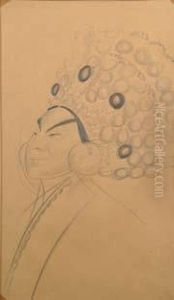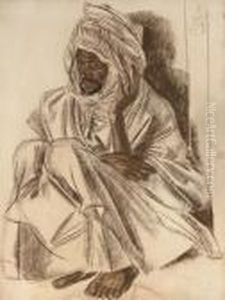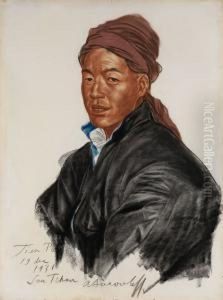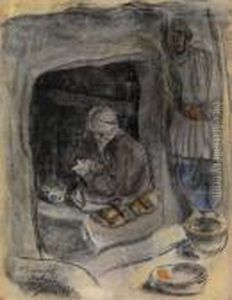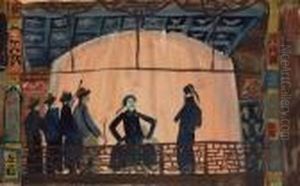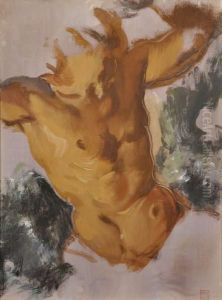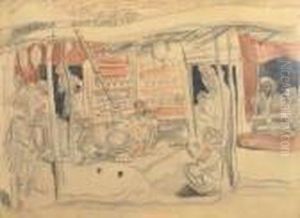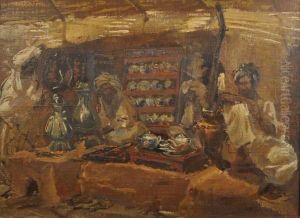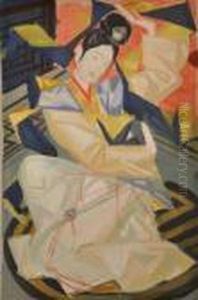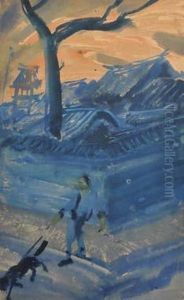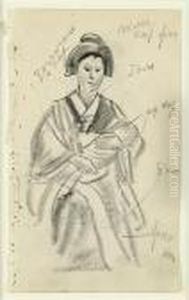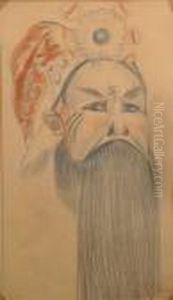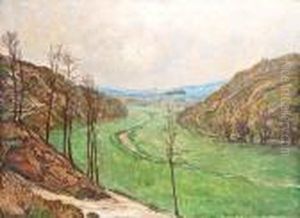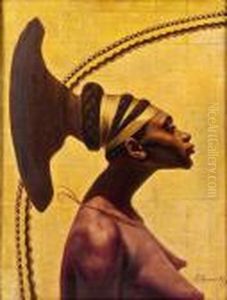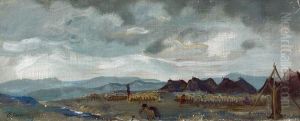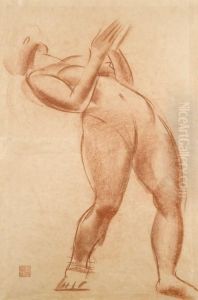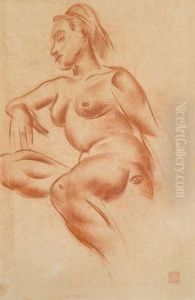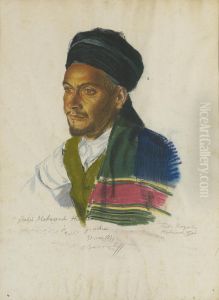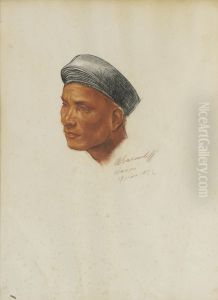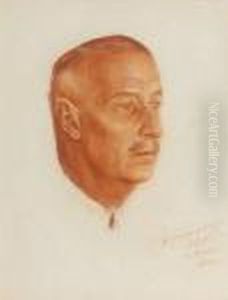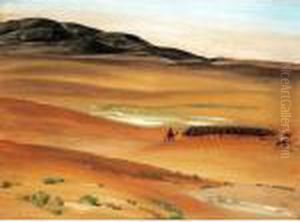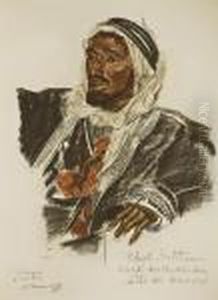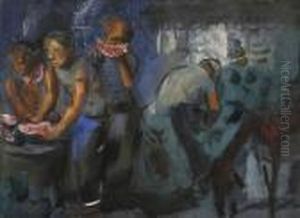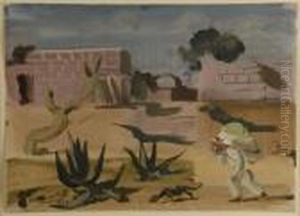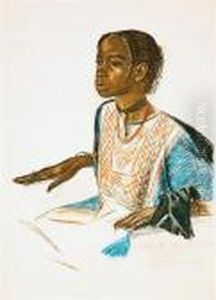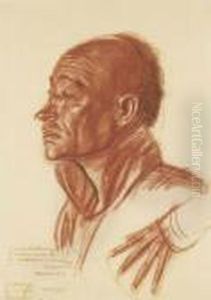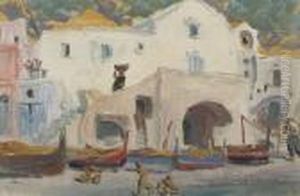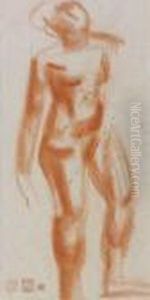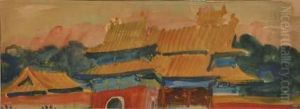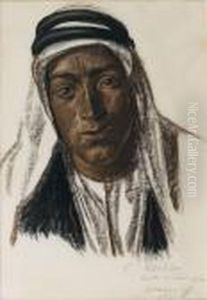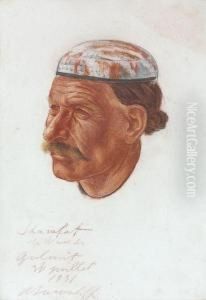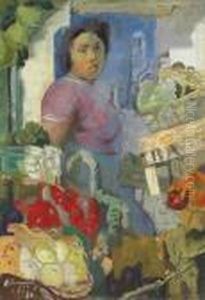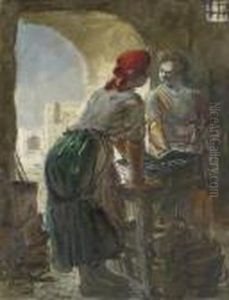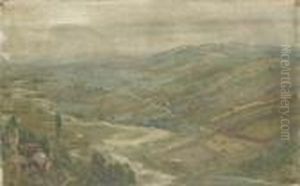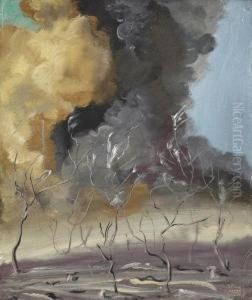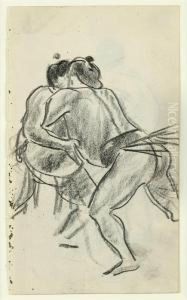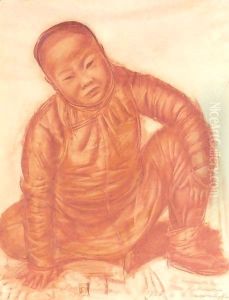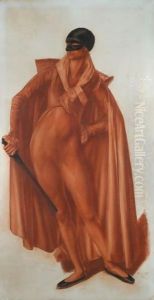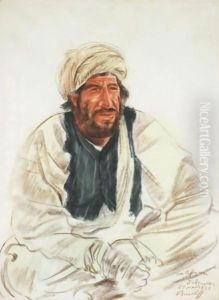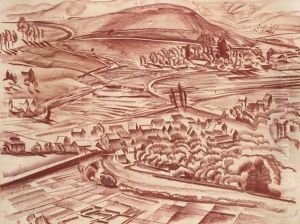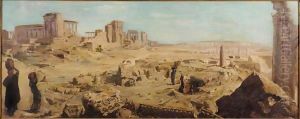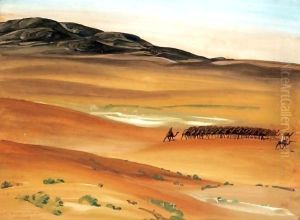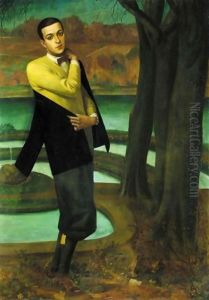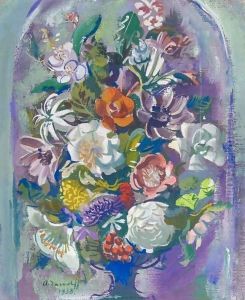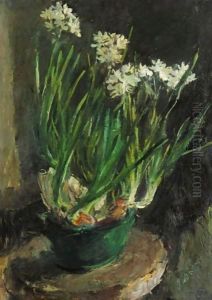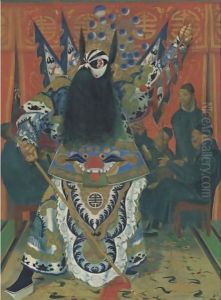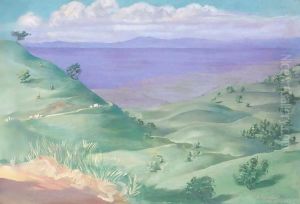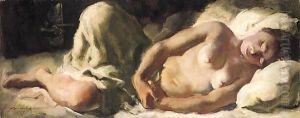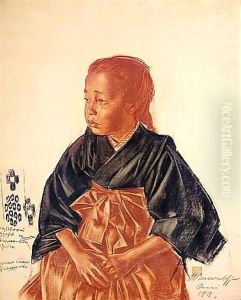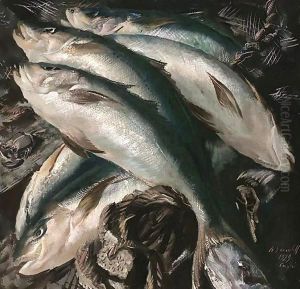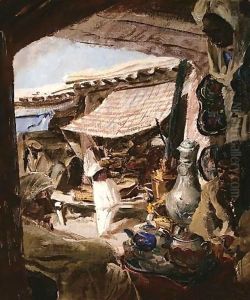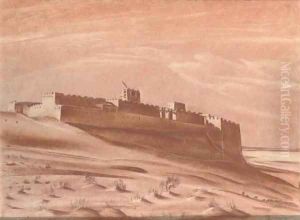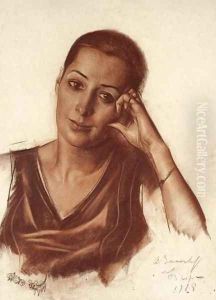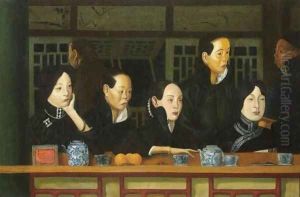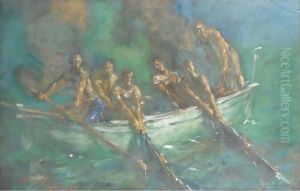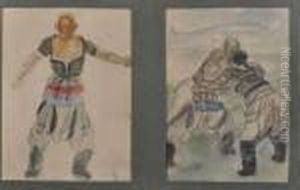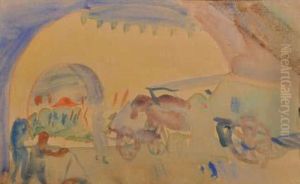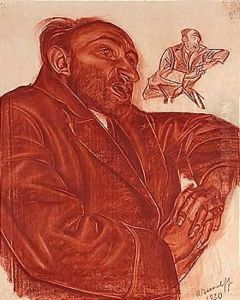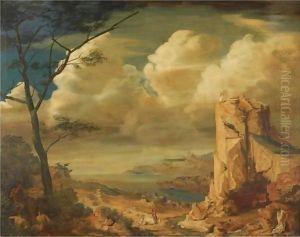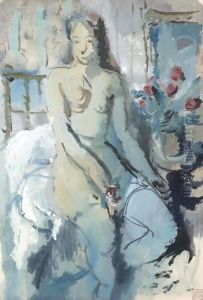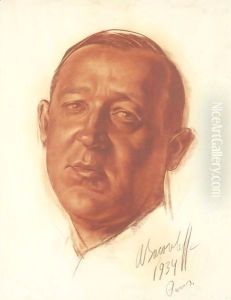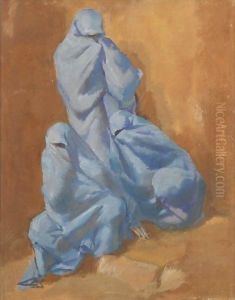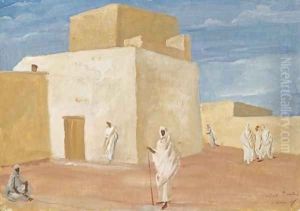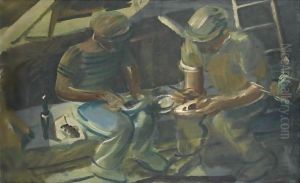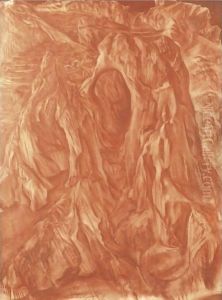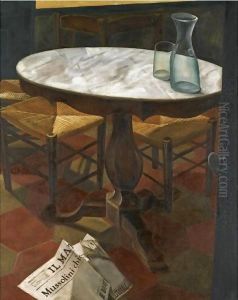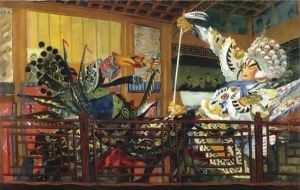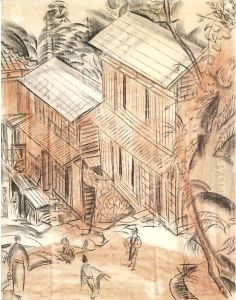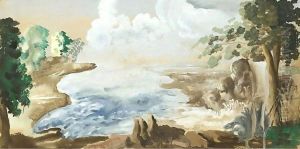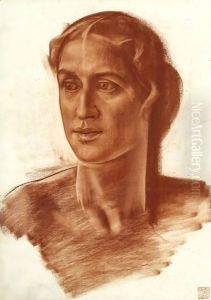Alexander Evgenievich Yakovlev Paintings
Alexander Evgenievich Yakovlev was a notable Russian painter and draughtsman, particularly known for his participation in the Mir Iskusstva (World of Art) movement. Born on April 2, 1887, in Saint Petersburg, Russia, Yakovlev was a part of the Silver Age of Russian culture, a period marked by significant achievements in the arts and literature.
Yakovlev's early education in the arts began at the Imperial Academy of Arts in Saint Petersburg, where he studied from 1905 to 1913 under the tutelage of prominent artists such as Albert Benois and Kardovsky. His talent was recognized early on, and he was awarded a scholarship that allowed him to travel to Italy and France to further his studies. This exposure to European art greatly influenced his style and artistic direction.
He served in World War I as a military artist, a role that allowed him to document the events of the war through his art. After the war, Yakovlev continued to travel extensively, visiting countries in Africa and Asia. These travels had a profound impact on his work, as he developed an interest in ethnographic painting, capturing the lives, customs, and costumes of the people he encountered on his journeys. His series of paintings and drawings from these travels were widely acclaimed.
Yakovlev's style was characterized by a combination of neoclassical and realist tendencies. He was adept at using both line and color to capture the essence of his subjects, often focusing on the interplay of light and shadow. His works frequently depicted scenes of everyday life, portraits, and landscapes, imbued with a sense of exoticism and adventure.
The artist's career was also marked by his involvement with the World of Art movement, which sought to elevate the status of Russian art and expose it to a broader European audience. He was a contemporary of other Russian artists such as Alexander Benois, Leon Bakst, and Sergei Diaghilev, who were also associated with this movement.
Tragically, Yakovlev's life and career were cut short by the political turmoil of his time. During Joseph Stalin's Great Purge, he was arrested and executed in 1938, a victim of the oppressive regime's crackdown on artists and intellectuals. Despite the tragic end to his life, Alexander Yakovlev left behind a rich legacy of artwork that continues to be celebrated for its beauty, technical skill, and ethnographic significance.
